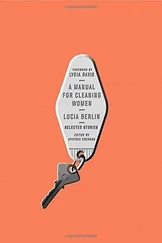Friday, 11 p.m., by the light of an oil lamp in the basement, my notebook on my knees. Around 10 p.m. there was a series of three or four bombs. The air-raid siren started screaming. Apparently it has to be worked manually now. No light. Running downstairs in the dark, the way we’ve been doing ever since Tuesday. We slip and stumble. Somewhere a small hand-operated dynamo is whirring away; it casts giant shadows on the wall of the stairwell. Wind is blowing through the broken panes, rattling the blackout blinds. No one pulls them down any more – what’s the point?
Shuffling feet. Suitcases banging into things. Lutz Lehmann screaming, ‘Mutti!’ To get to the basement shelter we have to cross the street to the side entrance, climb down some stairs, then go along a corridor and across a square courtyard with stars overhead and aircraft buzzing like hornets. Then down some more stairs, through more doors and corridors. Finally we’re in our shelter, behind an iron door that weighs a hundred pounds, with rubber seals around the edges and two levers to lock it shut. The official term is air-raid shelter. We call it cave, underworld, catacomb of fear, mass grave.
The ceiling is supported by a forest of rough timbers. You can smell the resin despite the doseness of the air. Every evening old Herr Schmidt – Curtainman Schmidt – launches into a structural analysis to demonstrate that the forest will hold up even if the building overhead collapses – assuming that it collapses at a certain angle and distributes its weight in a certain way. The landlord, who should know about that kind of thing, isn’t around to tell us. He took off to Bad Ems and is now an American.
In any case, the people here are convinced that their cave is one of the safest. There’s nothing more alien than an unknown shelter. I’ve been coming here for nearly three months and still feel like a stranger. Every place has its own set of quirks and regulations. In my old basement they were obsessed with having water on hand in case of fire. Wherever you turned you bumped into pots and pails and buckets and barrels full of murky fluid. And still the building burned like a torch. You might as well have spit on the fire for all that water would have done.
Frau Weiers told me that in her shelter it’s the lungs. At the first sound of a bomb they all bend forward and take very shallow breaths, their hands pressed against their bodies. Someone told them this would help prevent burst lungs. Here in this basement they’re all fixated on the walls. They sit with their backs against the outside wall – except in front of the ventilation flap. At the first explosion they move on to the next obsession: cloths – everyone has a cloth handy, to wrap around their mouths and noses and then tie behind their heads. I haven’t seen that in any other basement. I don’t know how the cloths are supposed to help. Still, if it makes people feel better!
Apart from these ticks it’s the usual cave dwellers on the usual chairs, which range from kitchen stools to brocade armchairs. We’re mostly upper and lower middle class, with a sprinkling of workers. I look around and take stock.
First is the baker’s wife, two plump red cheeks swaddled in a lambskin collar. Then the pharmacist’s widow, who finished a training course in first aid and who sometimes lays out cards on two chairs pushed together and reads them for the other women. Frau Lehmann, whose husband is missing in the east – and who is now a pillow for the sleeping infant on her arm and four-year-old Lutz asleep on her lap, his shoelaces dangling. The young man in grey trousers and horn-rimmed glasses who on closer inspection turns out to be a young woman. Three elderly sisters, all dressmakers, huddled together like a big black pudding. The refugee girl from Königsberg in East Prussia, wearing the few old rags she’s managed to piece together. Then there’s Schmidt, who was bombed out and reassigned here, Schmidt the curtain wholesaler without curtains, always chatting away despite his years. The bookselling husband and wife who spent several years in Paris and often speak French to each other in low voices…
I’ve just been listening to a woman of forty who was bombed out of her home in Adlershof and moved in here with her mother. Apparently a high-explosive bomb buried itself in her neighbour’s garden and completely demolished her own house, which she had bought with her savings. The pig she’d been fattening up was flung all the way into the rafters. ‘It wasn’t fit to eat after that.’ The married couple next door to her also met their maker. People retrieved what parts of them they could from the rubble of the building and the mess in the garden. The funeral was very nice. An all-male choir from the Tailors’ Guild sang at the graveside. But everything ended in confusion when the sirens cut in during the Rock of Ages and the gravediggers had to practically throw the coffin in the ground. You could hear the contents bumping about inside. And now for the punchline, the narrator chuckling in advance, although so far her story hasn’t been all that funny: And imagine – three days later their daughter is going through the garden looking for anything of use, and right behind the rain barrel she stumbles on one of her papa’s arms.’
A few people give a brief laugh, but most don’t. I wonder: did they bury the arm as well?
Continuing with my inventory. Across from me is an elderly gentleman, a businessman, wrapped in blankets and sweating feverishly. Next to him is his wife, who speaks with a sharp Hamburg ‘s’, and their eighteen-year-old daughter, whom they call Stinchen, with the same ‘s’. Then comes the blonde who was recently reassigned here and whom no one knows, holding hands with her lodger whom no one knows either. The scrawny retired postmaster and his wife, who is forever lugging around an artificial leg made of nickel, leather and wood – a partial Pieta since its owner, their one-legged son, is (or was, nobody knows for sure) in a military hospital in Breslau. The hunchbacked doctor of chemistry from the soft drink company, slumped over in his armchair like a gnome. Then the concierge’s family: a mother, two daughters and a fatherless grandson. Erna and Henni from the bakery, who are staying with their employer because it was impossible for them to make their way home. Antoine the Belgian with his curly black hair, who puts on a big show of being a baker’s apprentice and has something going with Henni. The landlord’s housekeeper, who got left behind, and who in open defiance of all air-raid regulations is carrying an aging fox terrier. And then there’s me, a pale-faced blonde always dressed in the same winter coat – which I managed to save just by chance – who was employed in a publishing house until it shut down last week and sent its employees on leave ‘until further notice’.
One or two other people, colourless, unremarkable. A community of discards, unwanted at the front, rejected by the Volkssturm, the civil defence. A few of our group are missing: the baker who’s gone out to his allotment plot to bury his silver (he’s the only one in the building with a red Class III ticket), and Fräulein Behn, a brash spinster who works in the post office, who just raced off to get today’s news-sheet during a lull in the bombing. Another woman left for Potsdam to bury seven of her family who died in the heavy bombardment there. The engineer from the third floor is also absent, along with his wife and son. Last week he boarded a barge that was to take him and his household goods along the Mittelland Canal to Braunschweig, where his armaments factory has been moved. The entire workforce is heading for the centre of the country. It must be dangerously overpopulated – unless the Yanks have already arrived. We no longer know a thing.
Читать дальше












